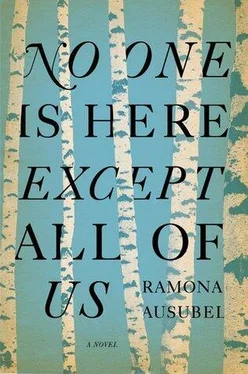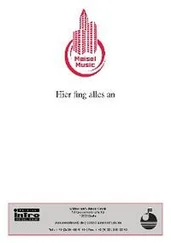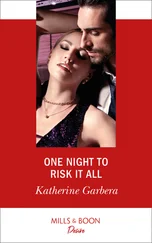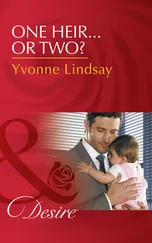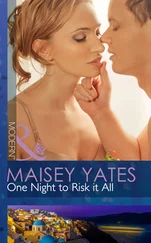“You’re a sweet girl,” he said. “What you’re doing is not easy. Growing up never is.”
I looked at the committee members with begging eyes.
“Look,” the greengrocer’s wife said. “You’ll grow for a while and then you’ll shrink again. I used to be able to see over the fence in the yard, now I have to look through the slats. Your size doesn’t really matter.” The promise of this comforted me and I saw a tiny, frail, shaky-legged version of myself — either very old or very young — toddling down a wide street, going unnoticed by the world around me.
I took the barber’s warm palm and placed it over my heart. “Count,” I commanded.
“Your heartbeats?” he asked. I nodded. The two of us closed our eyes and concentrated. The greengrocer and his wife were quiet. “That was twenty beats,” the barber said, and then, because my face must still have been full of questions, he added, “Very strong. Very healthy. You are doing fine.”
The shed seemed to lean a little to the left, like a sleeping person shifting for comfort. I opened the squeaking door and released the committee back into the light of that day. I imagined not just stepping out of the shed, but stepping out of my own skin layer by layer, leaving shells of myself everywhere, crisp and translucent, until I was just a tiny pink snake of a girl, hidden in the shade of a small stone.
The widow never became a better voice teacher. She came and she sat and she drank her glass of vodka and she scolded and then she fell asleep.
After the teacher left, Kayla said, “Let me hear you sing.”
I hedged. “Later. I don’t want to ruin the surprise.”
So Kayla said, “What a fabulous idea, a surprise concert! We will invite everyone.” Then a look of stunned excitement passed over her face. “Your coming-of-age ceremony!” she said, staring at the wall. Kayla saw a vision of me in a starched dress with flushed cheeks, and around me a roomful of admirers, their complete attention on the young woman. “Young woman !” Kayla squealed. In the crowd of admirers there would be young men, appreciative young men, hopeful young men, potential husbands. “A husband. A wedding .” Kayla sighed.
“A what?”
“Don’t act like you aren’t ready for a husband soon. It’s only natural,” Kayla snapped. She got a faraway look in her eye. “Oh, oh, yes,” she cooed.
I tilted my head down, headed out into a strong wind.
That weekend, everyone gathered in our sitting room. The baker, the doctor, the sheep farmer, the chicken farmer, the weaver, the banker, his wife and their small army with Igor at the head, the stranger and the jeweler, who insisted on sitting close to her and unwrapping candies for her to suck on, the gossips, the mothers and the fathers, the man with no left eye, the healer, the children, the butcher, the axe maker, the sheep shearer, the grandparents and the babies, the wives and husbands, everyone. It was pouring outside and the kitchen held a dozen stacks of heavy coats, puddles forming beneath them.
Sitting in the front were Perl, Vlad, Regina and Moishe. I had anticipated this meeting. I had torn my list of known objects into four pieces. They were secreted away in my pocket, waiting.
“This is a celebration of Lena’s life,” Kayla announced, everyone’s fingers dusty with sugar from the plates of cookies. “Our little Lena, who is a woman now.”
They looked at me as if they did not exactly see a woman, though they did not see a girl, either.
“Kayla,” Hersh said quietly. “Do we know what we think we know?”
“My husband the philosopher,” Kayla joked. “Lena is a woman now. I raised her myself, of course I know.” No one said anything different. “Think of your sons. Will they be looking for a good wife?” She passed around a dish of Linzer torte baked by me and asked that everyone please be silent while they enjoyed the confection. “Focus,” she told them, “focus on the cookie.” Then Kayla told me to demonstrate my horse-riding skills by trotting around the living room.
“Trot?” I asked. “You want me to pretend I have a horse?” I looked for the stranger, who knew how to become what others needed. She was waiting for my eyes to find hers. Her signal was a short, decisive nod. She was trying to offer a fact: you are you. You still are. I was red with embarrassment, but I trotted. Hersh tried not to look upset. He loved his wife and I knew he wanted her to feel supported. And me, too, prancing as if I were a horse, as if I were a girl and a horse at the same time. Was this right? Kayla stopped me and everyone clapped. My next trick was to count to ten in all of my languages. This was the thing I was actually proud of.
Kayla stood up next to me and said, “The widow, where is the widow?”
Everyone looked around the room. None of the faces belonged to our large, frowning widow. “She isn’t here,” I said.
“How could she not be here? It doesn’t matter. You are the star. Sing for us, Lena. Sing us your song.” She turned to the audience and said, “Lena is learning to be a star on the opera stage. Are you ready to see what that looks like?” The audience clapped, looking as if they did very much want to see what that looked like.
“Presenting! Lena!” She sat down to applause, like a burst of thunder.
I did not start singing, because I did not know how to sing.
The room became sticky with silence. Outside, rain wanted in. I vibrated with fear at the center of our circle. With quiet crawling all over everyone’s skin, making us itch, and with quiet seeping into our ears, the barber caught my eye and put his hand over his heart. He patted it, ba-bump, ba-bump, to remind me that I was alive, that I was all right. I opened my mouth, and what I did was I howled. I howled like a lost dog. I howled and I howled and I howled, filling my lungs with air and howling again. My voice cracked but I still howled. Dogs all around began to sing with me. They joined in and in until the whole neighborhood was an eruption of music. Every ear in the room was stuffed full of howl.
It was clear that people were confused. People were worried. They might have thought that maybe I was not a girl anymore. What could I be? Could I be a wolf? But I howled with such happiness, with such completeness, with the wild hillside dogs and the tame village dogs in full appreciation, full agreement, that the villagers’ faces began to crack and joy replaced concern.
“Listen to that girl go,” they said to one another.
“She is really howling now,” the jeweler whispered.
“Have you ever heard anything like this?” the greengrocer asked, shaking his head. Kayla stood up and put her hand on my shoulder. She was breathing like a bird, small huffs of air. But I did not stop. I did not care that Kayla was there, huffing at me. Kayla looked at Hersh, her eyes desirous of any help at all, but Hersh stayed put.
Perl smiled. Perl looked at the girl she had given birth to, standing in the center of all the people in the village, making my very loud noise. She and Vlad held hands tightly.
The stranger began to laugh. Not the laugh of mocking but the laugh of total enjoyment. The jeweler joined. Pretty soon everyone was laughing, everyone was shaking, everyone’s eyes were spilling out. Igor and his gang clapped and hooted. Then they started to join me in my howl. They opened their dark mouths and like the pack that we were, we sounded our collective call. We are all here, our voices said. This is our home, our turf, our valley. We have peed all over it, slept all over it, dreamed all over it, renamed it. No one is here except all of us. I howled and we howled and the dogs sang back to all of us.
The widow was the only person in town who was not there. She was asleep in her chair with her stick and her bottle. She had thought this would be the end of her. I would sing terribly, she would lose her job and she would have no choice but to slowly eat her own arms and legs. Despite the rules in place to look out for one another, the widow was prepared for the very worst she could imagine. Our howling must have seeped into her drunken sleep and hushed her up — the whole world singing at the same time like that, not a learned song but a known song, the long, shrill note of simple existence.
Читать дальше
